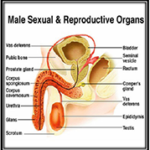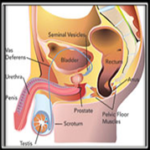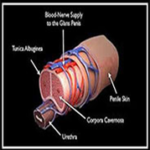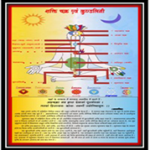EVERYTHING ABOUT OMICRON VIRUS - COVID 19VARIANT
SymptomsCoronavirus disease (COVID-19) is an infectious disease caused by the SARS-CoV-2 virus.
Most people who fall sick with COVID-19 will experience mild to moderate symptoms and recover without special treatment. However, some will become seriously ill and require medical attention.
What is omicron virus-?
The Omicron variant is a variant of SARS-CoV-2 (the virus that causes COVID-19) that was first reported to the World Health Organization (WHO) from South Africa on 24 November 2021.Since its first detection in South Africa, Omicron has now spread to 69 countries in the world. With its unusually high number of mutations, the coronavirus has challenged human intelligence on to what extent it can evolve. This high mutation in the virus accounts for easy immune evasion and high transmissibility, scientists say.
Therefore, it is essentially required to remain aware and be prepared with everything in order to fight this virus.
How the Omicron variant develop-
When a virus is circulating widely and causing numerous infections, the likelihood of the virus mutating increases. The more opportunities a virus has to spread, the more opportunities it has to undergo changes. Omicron multiplies around 70 times faster than the Delta variant in the bronchi (lung airways).
The Omicron variant has a total of 60 mutations compared to the reference / ancestral variant: 50 non synonymous mutations, 8 synonymous mutations, and 2 non-coding mutations. Many of those mutations had not been observed in other strains.
Severity of omicron virus-
Evidence suggests it is less severe than previous strains, especially compared to the Delta variant. Omicron might be less able to penetrate deep lung tissue. Omicron infections are 91 percent less fatal than the delta variant, with 51 percent less risk of hospitalization. Overall, the extremely high rate of spread, combined with its ability to evade both double vaccination and the body’s immune system, means the total number of patients requiring hospital care at any given time is still of great concern.
Spread of omicron virus-
Like other variants, omicron spreads from the nose and mouth through respiratory droplets at close range and through virus particles that float through the air and can stay suspended for quite a while, especially in places with poor ventilation. The viral load is much higher in Omicron, which means that someone infected with the Omicron variant is more infectious than someone infected with the Delta variant.
Sign and symptoms of omicron virus:
Most Common Symptoms
- Fever
- Cough
- Tiredness
- Loss of sense of taste or smell.
Less common symptoms
- Sore throat
- Headache
- Aches and pains
- Diarrhea
- Rashes on skin
- Discolorations of fingers or toes
- Red or irritated eyes.
Serious symptoms
- Difficulty breathing or shortness of breath
- Loss of speech or mobility
- Confusion
- Chest pain
Diagnosis- It is detected in Real time PCR test (RT-PCR) and antigen-based rapid diagnostic tests same as for other variants of Covid 19
Prevention-
The most important thing you can do is reduce your risk of exposure to the virus. To protect yourself and your loved ones, make sure to:
- Wear a mask that covers your nose and mouth. Make sure that your hands are clean when you put on and remove your mask.
- Keep a physical distance of at least 6 feet from others.
- Avoid poorly ventilated or crowded spaces.
- Open windows to improve ventilation indoors.
- Wash your hands regularly.
- When it’s your turn, get vaccinated. WHO-approved COVID-19 vaccines are safe and effective.
Treatment-
There is no specific, effective treatment or cure for coronavirus disease 2019 (COVID‑19), the disease caused by the SARS-CoV-2 virus or other Covid variants.
The cornerstone of management of COVID‑19 has been supportive care, which includes treatment to relieve symptoms, fluid therapy, oxygen support and prone positioning as needed, and medications or devices to support other affected vital organs.
Most cases of COVID‑19 are mild. In these, supportive care includes medication such as paracetamol or NSAIDs to relieve symptoms (fever, body aches, cough), proper intake of fluids, rest, and nasal breathing. Good personal hygiene and a healthy diet are also recommended.
People with more severe cases may need treatment in hospital. In those with low oxygen levels, use of the glucocorticoid dexamethasone is strongly recommended, as it can reduce the risk of death. Noninvasive ventilation and, ultimately, admission to an intensive care unit for mechanical ventilation may be required to support breathing.
Corticosteroids such as dexamethasone and IL6 receptor blockers such as tocilizumab (Actemra) are known to be effective for managing patients with the earlier strains of severe COVID-19. The impact on the effectiveness of other treatments was being assessed.
The antiviral remdesivir is available with varying restrictions; however, it is not recommended for people needing mechanical ventilation, and is discouraged altogether by the World Health Organization (WHO) due to limited evidence of its efficacy.
Some people may experience persistent symptoms or disability after recovery from the infection; this is known as long COVID. There is still limited information on the best management and rehabilitation for this condition.
Is COVID-19 vaccines effective against the Omicron variant?
WHO reports that so far it looks like the currently available vaccines offer significant protection against severe disease and death. Information is still limited, but there may be a small reduction in the effectiveness of vaccines against severe illness and death, and a decline in preventing mild disease and infection.
It is also important to be vaccinated to protect against the other widely circulating variants, such as the Delta one. When it’s your turn, make sure to get vaccinated. If your vaccination involves two doses, it’s important to receive both in order to have the maximum protection.
Importance of immunity (during Covid 19 pandemic)-
Immunity has become the go-to word for people ever since the Covid-19 pandemic hit the world. Now amid the fast-spreading Omicron variant, people have become all the more conscious about taking preventive steps against the dreaded virus. Apart from the need to follow safety protocols strictly, experts have recommended natural immunity boosting ways.
Here are tips to strengthen your immunity naturally.
- Get enough sleep. Sleep and immunity are closely tied….
- Eat more whole plant foods….
- Eat more healthy fats….
- Eat more fermented foods or take a probiotic supplement….
- Limit added sugars….
- Engage in moderate exercise….
- Stay hydrated….
- Manage your stress levels….






